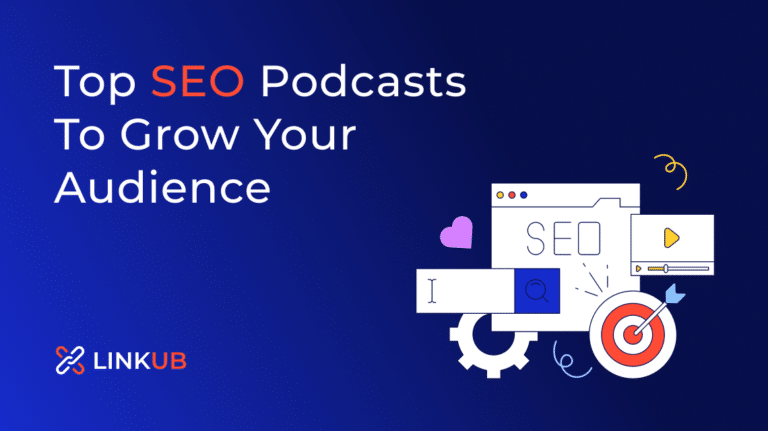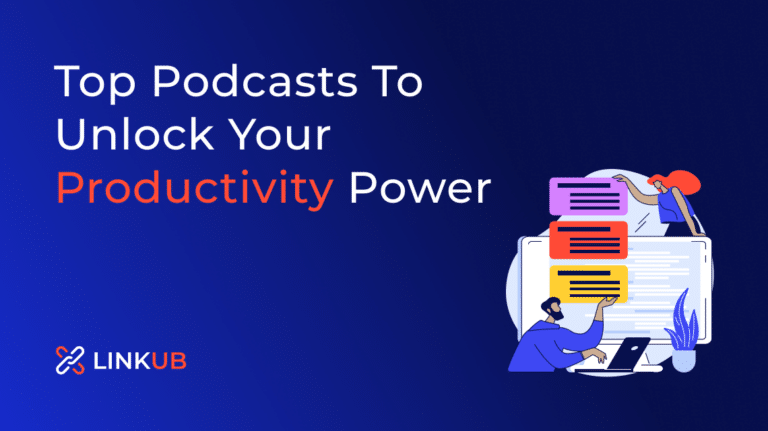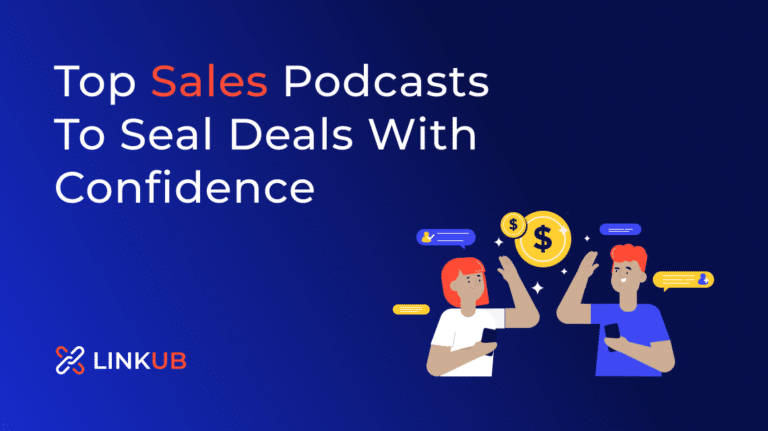53 Best Hosting Platforms in 2024
Are you overwhelmed with the plethora of podcast hosting platforms out there?
Did you know that as of 2023, there were over 2 million podcasts and 48 million podcast episodes? With the growing podcast market, choosing the right hosting platform is essential to stand out.
That’s why we’ve compiled a list of the best podcast hosting platforms to help you launch your podcast quickly. Ready? Let’s dive in!
Top Podcast Hosting Software
Methodology
The ranking of the podcast hosting platforms is determined by considering several factors, including the number of citations and user reviews they have received.
Most Used Podcast Hosting Platforms
1.
SoundCloud is a widespread audio distribution platform serving as a podcast hosting solution. Key benefits include:
User-friendly interface: Easily upload, manage, and share podcast episodes.
Vast community: Access SoundCloud’s extensive user base, increasing discoverability.
Embeddable player: Share episodes on websites and social media with a customizable audio player.
Basic analytics: Track listener engagement, plays, and downloads for data-driven decisions.
Free and premium plans: Choose various pricing options to suit your needs and budget.
Pricing: Free/Paid
Pricing page: https://checkout.soundcloud.com/pro
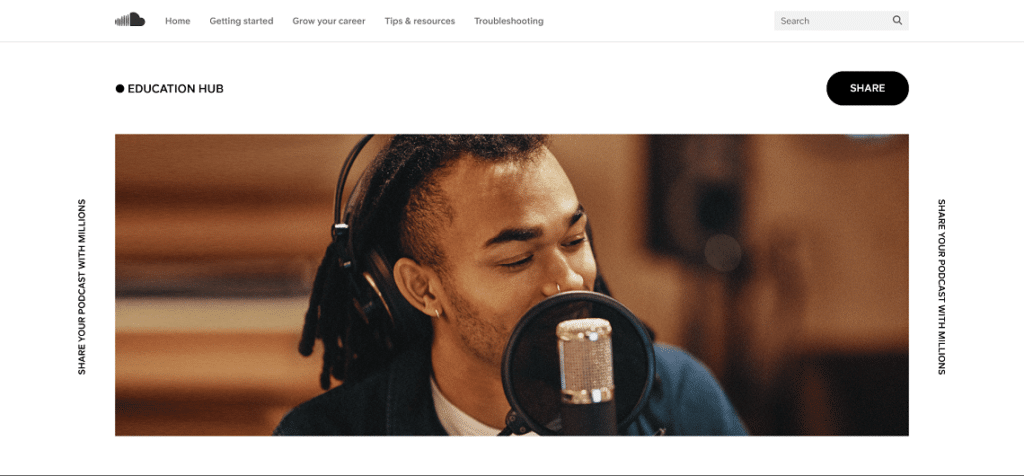
2.
BuzzSprout is a renowned podcast hosting platform that simplifies podcast creation, distribution, and promotion. Key benefits include:
Easy setup: Quickly upload, schedule, and manage podcast episodes.
Comprehensive distribution: Automatically submit to major podcast directories for maximum reach.
Advanced analytics: Track listeners, downloads, and trends to understand audience behavior.
Transcription services: Enhance accessibility with integrated episode transcriptions.
Monetization support: Earn revenue with affiliate partnerships and donation options.
Pricing: Free/ Paid
Pricing page: https://www.buzzsprout.com/pricing
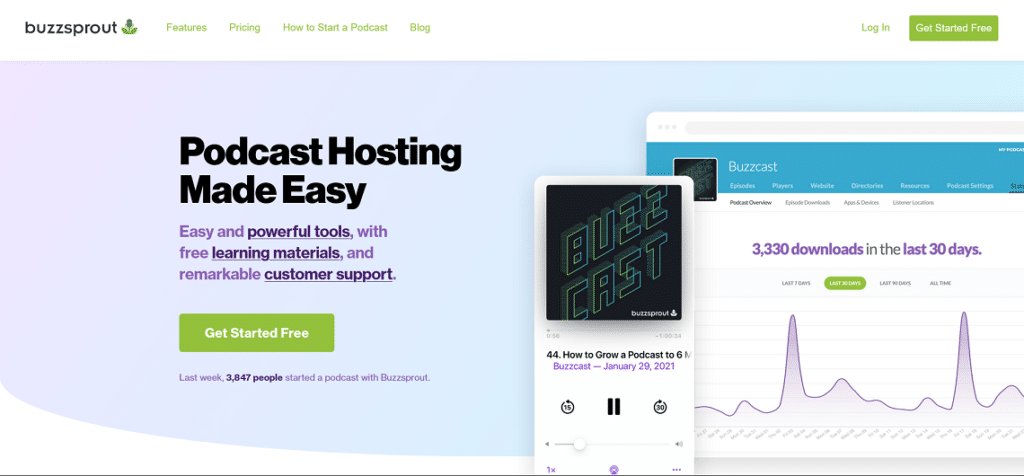
3.
Podbean is a feature-rich podcast hosting platform that simplifies podcast publishing and distribution. Key benefits include:
- Intuitive interface: Easily upload, manage, and publish podcast episodes.
- Automatic distribution: Reach a wider audience through submission to significant podcast directories.
- In-depth analytics: Analyze listener demographics, downloads, and trends for data-driven growth.
- Built-in monetization: Generate revenue through ads, premium content, and patron support.
- Customizable website: Create a personalized podcast site with a domain, branding, and blog integration.
Pricing: Free/Paid
Pricing page: https://www.podbean.com/podcast-hosting-pricing
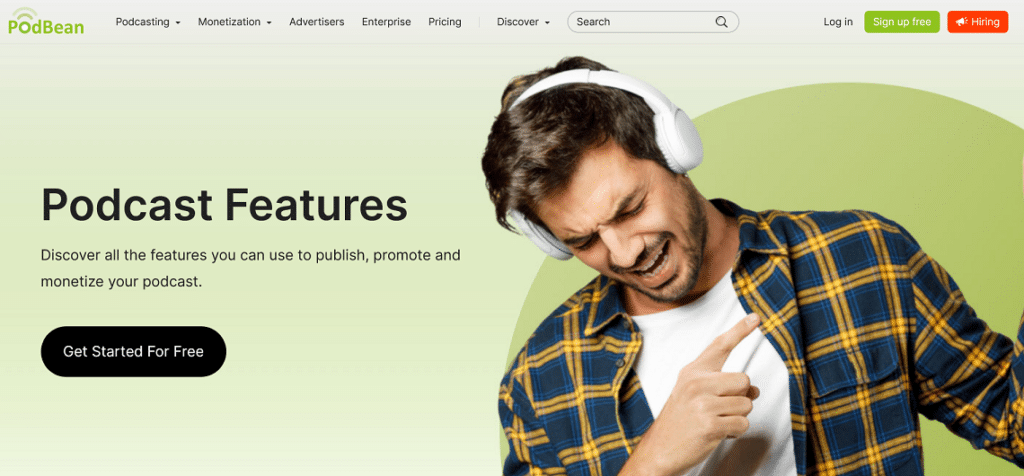
4.
Libsyn is a leading podcast hosting platform that offers reliable hosting, distribution, and monetization options. Key benefits include:
- Robust hosting: Enjoy unlimited bandwidth and storage with dependable, stable hosting.
- Wide distribution: Easily submit to significant podcast directories and apps for increased visibility.
- Comprehensive analytics: Gain insights on listener behavior, demographics, and episode performance.
- Customizable podcast site: Create a branded website with your domain, design, and blog integration.
- Monetization options: Generate revenue through advertising, premium content, and donation support.
Pricing: Paid
Pricing page: https://libsyn.com/plans-and-pricing/

5.
Transistor is a powerful podcast hosting platform that prioritizes simplicity and ease of use. Key benefits include:
Straightforward setup: Quickly upload, schedule, and easily manage podcast episodes.
Broad distribution: Automatically submit to popular podcast directories for increased exposure.
Comprehensive analytics: Access listener data, downloads, and trends to inform decision-making.
Multiple shows: Host unlimited podcasts under one account, perfect for creators with numerous projects.
Customizable website: Design a branded podcast site with your domain, styling, and blog integration.
Pricing: Paid
Pricing page: https://transistor.fm/pricing/
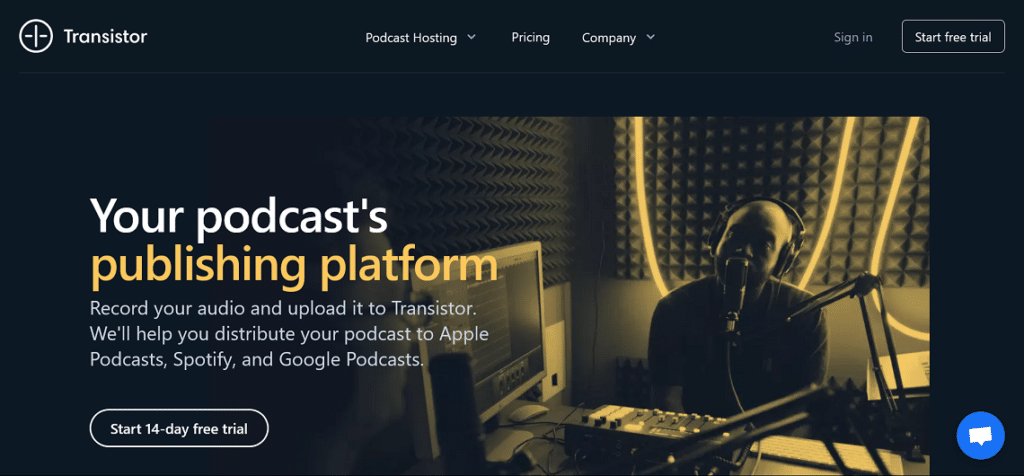
6.
Captivate is a growth-oriented podcast hosting platform designed to help podcasters expand their reach. Key benefits include:
User-friendly interface: Simplify podcast management with an intuitive dashboard and tools.
Comprehensive distribution: Effortlessly submit to major podcast directories for maximum exposure.
Advanced analytics: Dive deep into listener behavior, episode performance, and audience demographics.
Built-in monetization: Unlock revenue opportunities through sponsorships, donations, and memberships.
Customizable websites: Create a branded podcast site with domain, design, and email list integration.
Pricing: Paid
Pricing page: https://www.captivate.fm/features
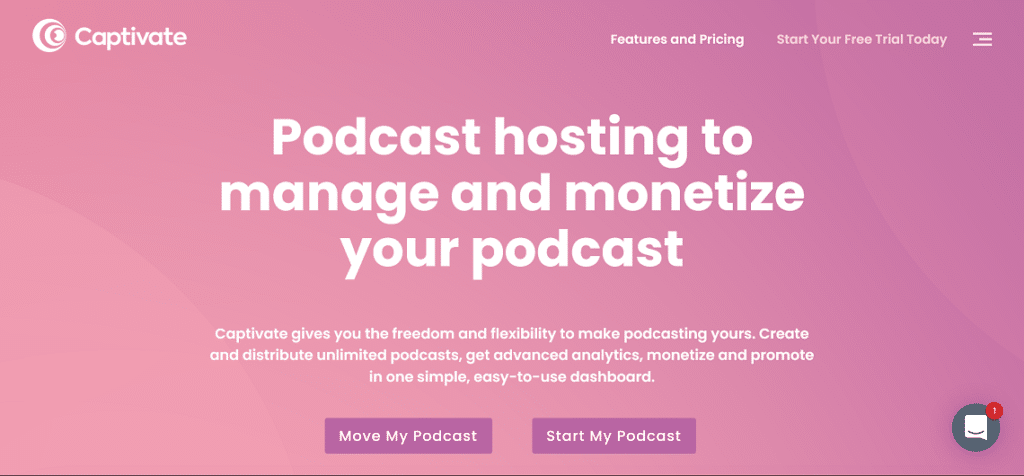
7.
Castos is a versatile podcast hosting platform streamlining podcast creation, distribution, and growth. Key benefits include:
- Simple workflow: Easily upload, manage, and schedule podcast episodes.
- Automatic distribution: Reach more listeners by submitting to top podcast directories.
- In-depth analytics: Access valuable listener data, downloads, and episode performance insights.
- Unlimited hosting: Host multiple podcasts with unlimited episodes and bandwidth under one account.
- Customizable website: Develop a branded podcast site with domain, design, and email marketing integration.
Pricing: Paid
Pricing page: https://castos.com/pricing/
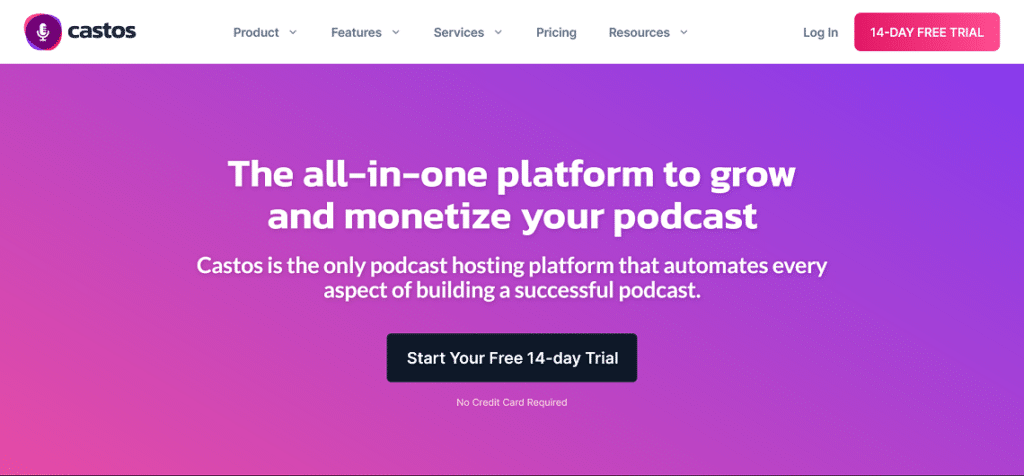
Further reading
What Is a Podcast?
Podcasting is a type of online broadcasting platform. It’s one of the most common ways to communicate digitally and share experiences with listeners.
This approach can be used by those passionate about creating content who want to spread their message to a large audience. Aside from the RSS feeds, podcasts can be downloaded in audio or video formats and viewed on mobile devices.
What Is the Biggest Advantage of Podcasts?
Podcasts allow you to spread the world – and precisely your audience _ your message. Podcast hosting services will enable you to distribute your stories to your listeners.
Additionally, there are numerous methods to profit from your podcast. It could be in advertisements, or it could be through the sale of your product or service. It doesn’t always work for many podcasts, but it will work for those who have committed to their listeners and intend to keep it.
What Is Podcast Hosting?
A podcast host is where your podcast’s audio files are stored and distributed. A podcast RSS feed, essentially a list of all your episodes, is provided that you may submit to podcast directories like Apple Podcasts.
As well as publishing and promoting your podcast using these tools, they also give you analytics, ad networks, social sharing capabilities, and other distribution possibilities.
Do I Need a Host for My Podcast?
Podcast hosting services build RSS feeds for listeners, a function that most individuals cannot perform independently. Using an RSS feed, podcast directories like Apple Podcasts, Spotify, Google Play, TuneIn, Stitcher, and others may find your episodes and play them for their listeners through a specific signal.
You can’t have an RSS feed without a host. To keep your listeners engaged, you must have an RSS feed. Your podcast will not be complete without a host.
How Much Does Podcast Hosting Cost?
Podcast hosting typically ranges from $5 to $50 per month.
There is a wide range of pricing based on the solution, the number of episodes you make, and the number of downloads you receive. Also, some firms base their price on megabytes, hours, downloads, or bandwidth.
Usually, most people don’t spend more than $19 a month when starting. Much more might be expected if your podcast is well-known.
Wrap Up
So, there you have it – our handpicked list of the best podcast hosting platforms to make your podcast journey as smooth as possible.
Remember, with a growing number of podcasts, choosing the right hosting platform is crucial to your success.
So, take your time, explore the options we’ve presented, and select the one that aligns with your needs and goals.
Here’s to your podcasting success, and happy recording!
FAQs
Some of the top podcast hosting platforms include Anchor, Podbean, Buzzsprout, Transistor, Simplecast, and Libsyn. Each has unique features and pricing structures, so evaluating which platform best suits your needs is essential.
The cost varies depending on the platform and the plan you choose. Some platforms, like Anchor, offer free plans with basic features. Others have tiered pricing structures, with monthly fees typically ranging from $5 to $50 or more, depending on the features and storage you need.
Yes, most podcast hosting platforms allow you to transfer your podcast without losing your existing subscribers or analytics data. They typically provide a simple migration process, which usually involves providing your RSS feed from your old host and following a few steps.
Podcast hosting platforms simplify distribution by automatically submitting your podcast to various directories and apps like Apple Podcasts, Spotify, Google Podcasts, Stitcher, and more. This ensures your podcast reaches a broad audience and saves you time from manually submitting to each platform.
Analytics vary by platform, but most offer essential data such as total downloads, unique listeners, listener locations, and the devices used to access your podcast. Some platforms provide more advanced analytics like listener demographics, retention, and engagement statistics.
Many podcast hosting platforms provide monetization options such as dynamic ad insertion, premium content, and sponsorship opportunities. The specific options available depend on the platform and your podcast’s popularity.
Most podcast hosting platforms offer website creation tools that allow you to create a simple and customizable website for your podcast. These websites usually include features like embedded podcast players, episode lists, and customizable themes.
Many podcast hosting platforms offer marketing tools such as customizable podcast players, social media sharing, and promotional graphics. Some platforms also provide built-in SEO optimization and integration with email marketing services.
Storage and bandwidth are crucial factors when choosing a hosting platform. Storage determines how much audio content you can upload, while bandwidth affects the number of downloads your podcast can handle. Ensure the platform you choose offers sufficient storage and bandwidth for your needs.
An RSS (Really Simple Syndication) feed is a file that contains information about your podcast, including episode details, artwork, and metadata. Podcast hosting platforms automatically generate and update your RSS feed as you publish new episodes, making it easy for podcast directories and apps to access and display your content.


